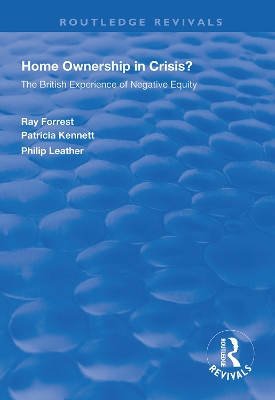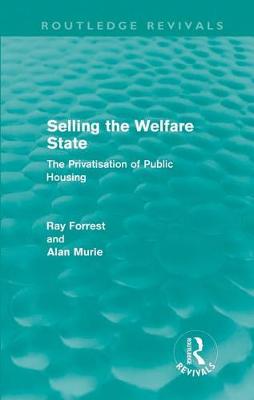Routledge Revivals
2 total works
Home Ownership in Crisis?
by Ray Forrest, Patricia Kennett, and Philip Leather
Selling the Welfare State (Routledge Revivals)
by Ray Forrest and Alan Murie
Originally published in 1988, this book offers the first comprehensive and critical analysis of the privatisation of public housing in Britain. It outlines the historical background to the growth of public housing and the developing political debatea surrounding its disposal. The main emphasis in the book, however, is on the ways in which privatisation in housing links to other key changes in British society. The long trend for British social housing to become a welfare housing sector is related to evidence of growing social polarisation and segregation. Within this overall context, the book explores the uneven spatial and social consequences of the policy.

